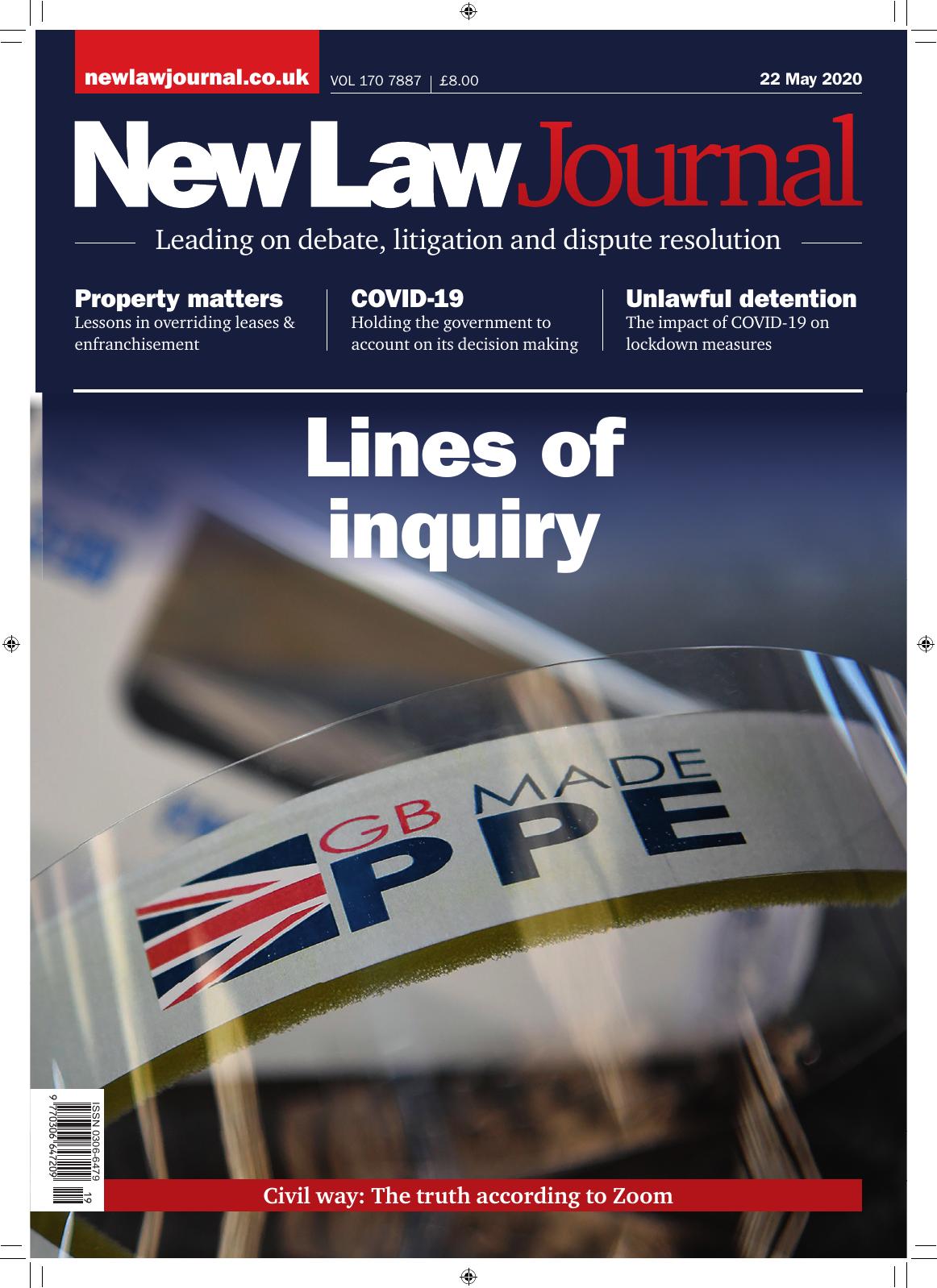
‘I accept that
having a full inquiry now would involve experts whose time might be better
spent advising the government. Yet any post-COVID inquiry will come too late to
prevent the deaths that must surely result from the government’s latest
decision to relax movement restrictions.
‘So, we should
start an inquiry immediately with the initial purpose of simply gathering and
sharing evidence―hearings can come later.’
Former head of
the Home Civil Service Sir Bob Kerslake and the Trades Union Congress have also
urged a public inquiry. Nick Griffin QC, of QEB Hollis Whiteman, suggested in
this week’s Law Society Gazette that there was ‘a solid basis for triggering an
inquiry’.
Writing in NLJ this week, Sophie Kemp, public law partner, Kingsley Napley, says the government
could find itself compelled to hold an inquiry under Art 2 of the European
Convention on Human Rights, which imposes ‘a positive obligation to take
appropriate measures to safeguard life’. Article 2 includes an ‘investigative
duty’, which ‘is engaged where “systemic” issues are suspected to have
contributed to a person’s death’, she says.
Kemp sets out
areas likely to form part of the terms of reference of any future inquiry.
These are: early decision making and planning; the policy and guidance on discharging
hospital patients to care homes; and PPE (personal protective equipment)
supply, resourcing and guidance that ran contrary to many doctors’ concerns.
She also
highlights key policy decisions that were out of step with World Health
Organisation (WHO) guidance, and which participants in a future inquiry may
argue were inconsistent with the government’s obligation to take practical
steps to reduce the risk of death. They include the 12 March decision to end
testing and contact tracing when moving from the ‘contain’ phase to ‘delay
phase’ of the government response, ‘the apparent decision to adopt a “herd
immunity” strategy during the ‘delay phase’; and whether lockdown was
introduced too late.










